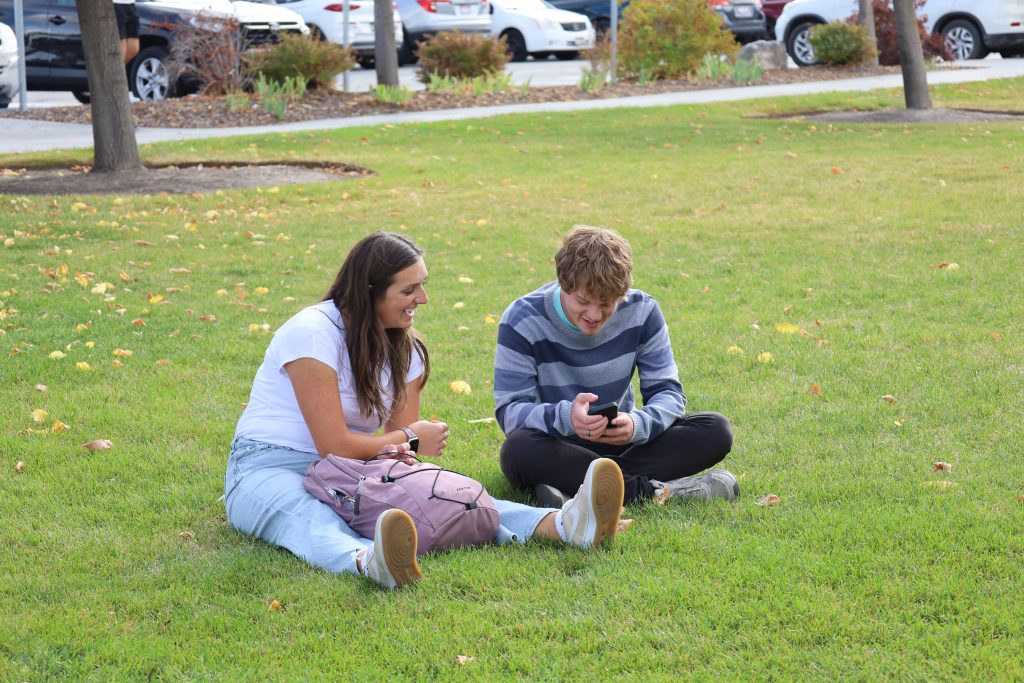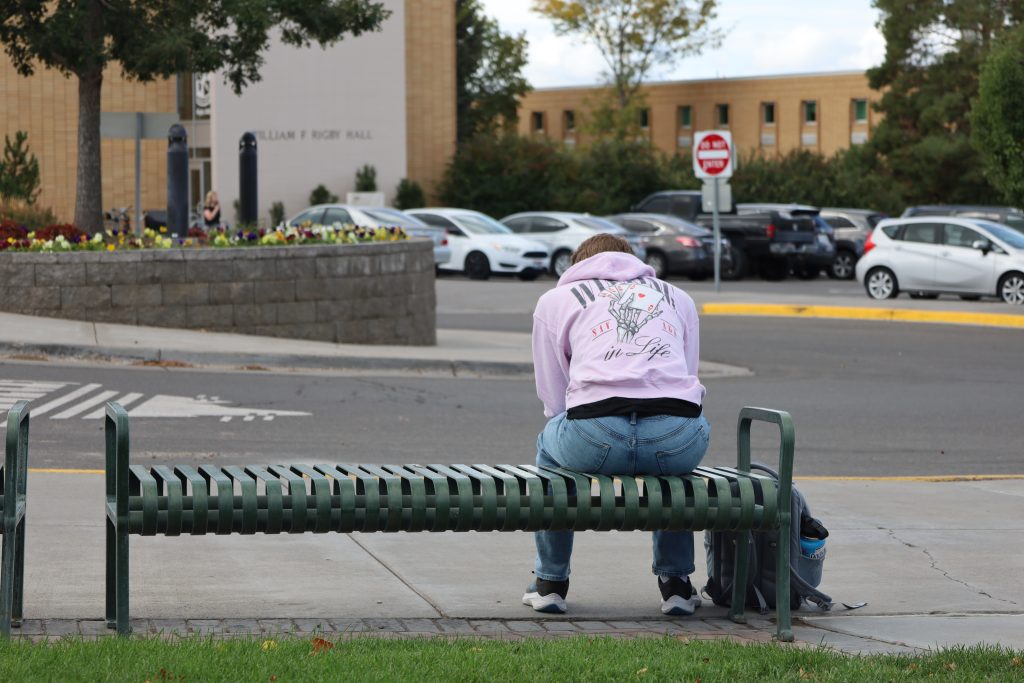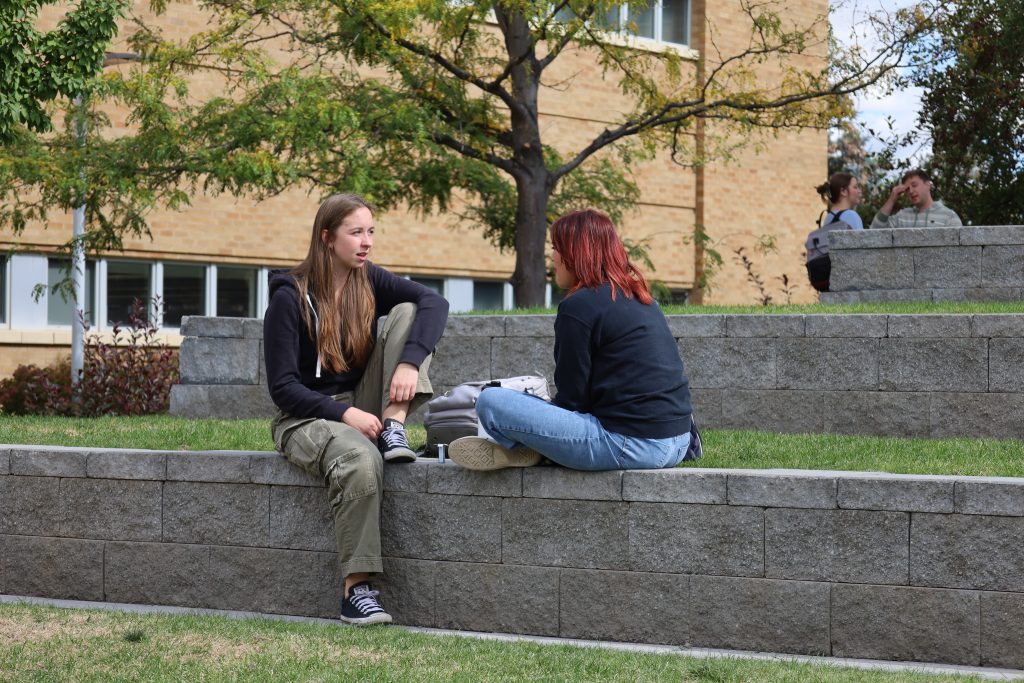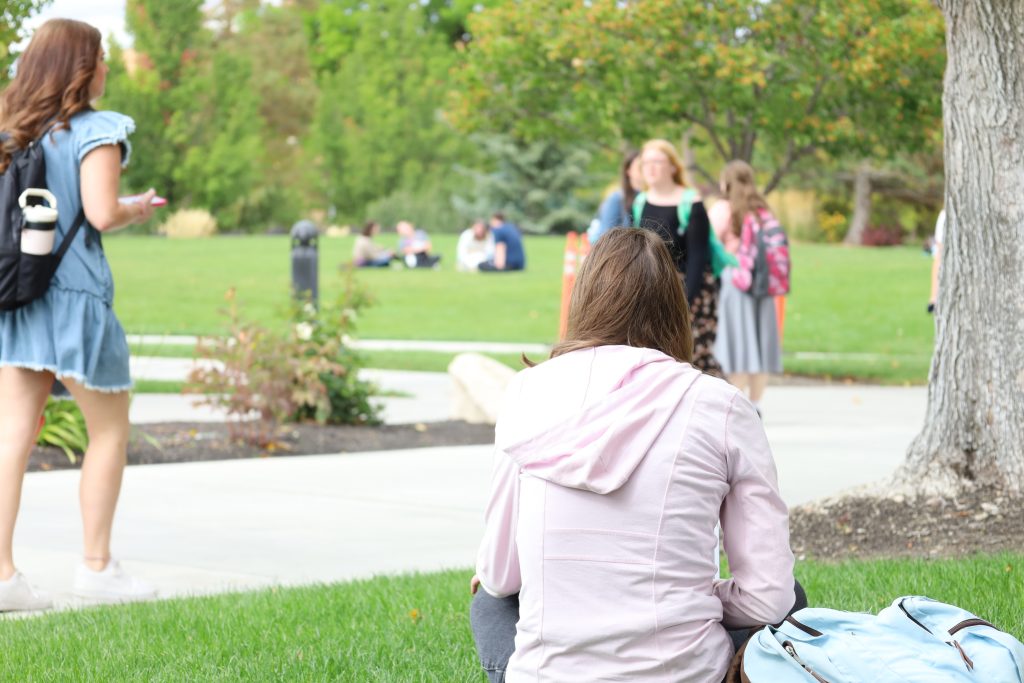As the fall semester progresses at Brigham Young University-Idaho, many students are adjusting to the stress of college life, especially freshmen, who often feel more overwhelmed as they learn the ropes.
Juliana Carr, a freshman at BYU-Idaho, described how her mental health has changed since coming to the university.
“Now that I’m in university, I feel a little bit more stress and find myself struggling with anxiety,” said Carr.
When asked about how she copes, Carr said, “I keep a planner, which has helped me feel more in control … I find going to the temple, reading my scriptures and praying to God has also helped relieve my stress. There’s also resources on campus that I’ve been utilizing.”
How to cope with stress

 Students sitting outside the Thomas E. Ricks building. Image Credit: Katherine MacDonald
Students sitting outside the Thomas E. Ricks building. Image Credit: Katherine MacDonald
Yohan Delton, the Chairman of the Department of Psychology, suggested focusing on the things that are good in your life, then having gratitude for those things. After some time, your outlook will change to a more positive mindset.
“When we overly emphasize on the negative, we end up not paying attention to what is positive,” said Delton.
Delton also mentioned that, “serving others could be key to your mental health.”
Warning signs of serious mental health struggles

 A student waiting alone. Image Credit: Katherine MacDonald
A student waiting alone. Image Credit: Katherine MacDonald
According to Delton, warning signs include self-isolation, loneliness, changes in sleep patterns, repeated behaviors, falling behind in school, difficulty getting up in the morning and strained relationships with roommates.
“Don’t isolate too much,” said Reed Stoddard, director of the Counseling Center. Stoddard reminded students to improve sleep habits, diet, exercise, make social connections and interact with others.
How friends and roommates can help

 Friends chatting in the McKay Quad Amphitheater. Image Credit: Katherine MacDonald
Friends chatting in the McKay Quad Amphitheater. Image Credit: Katherine MacDonald
Delton encouraged freshmen to actively seek the help of those around them.
“Know that you could be that important person; you could be that link to helping them reach out and open up,” Delton said.
Delton suggested that there are two ways for students to go about getting advice.
“First are your ecclesiastical leaders. They could give you some insights or help reach out with you,” Delton said. “Second is the Dean of Students, they are there for the welfare of the students, and they have access to all the resources on campus.”
What should freshmen do if they are struggling?

 A student looking at a group. Image Credit: Katherine MacDonald
A student looking at a group. Image Credit: Katherine MacDonald
Stoddard encouraged students to get involved, to connect and talk to people.
Resources are available for students on and off campus, including the Counseling Center, anxiety workshops and online therapy assistance programs.
“Campus anxiety workshops includes therapists, who teach skills such as how to manage your way of thinking, how to calm yourself and how to problem solve in a healthy way.” Stoddard said, “If you feel like you need counseling, come to counseling, we have groups, medications and a wide range of resources.”
